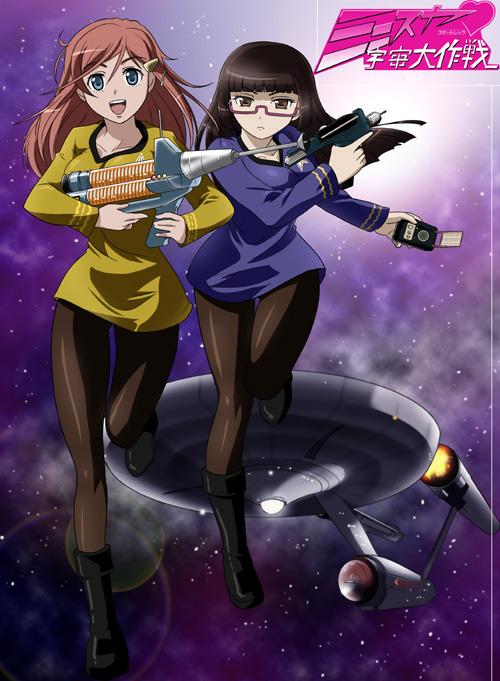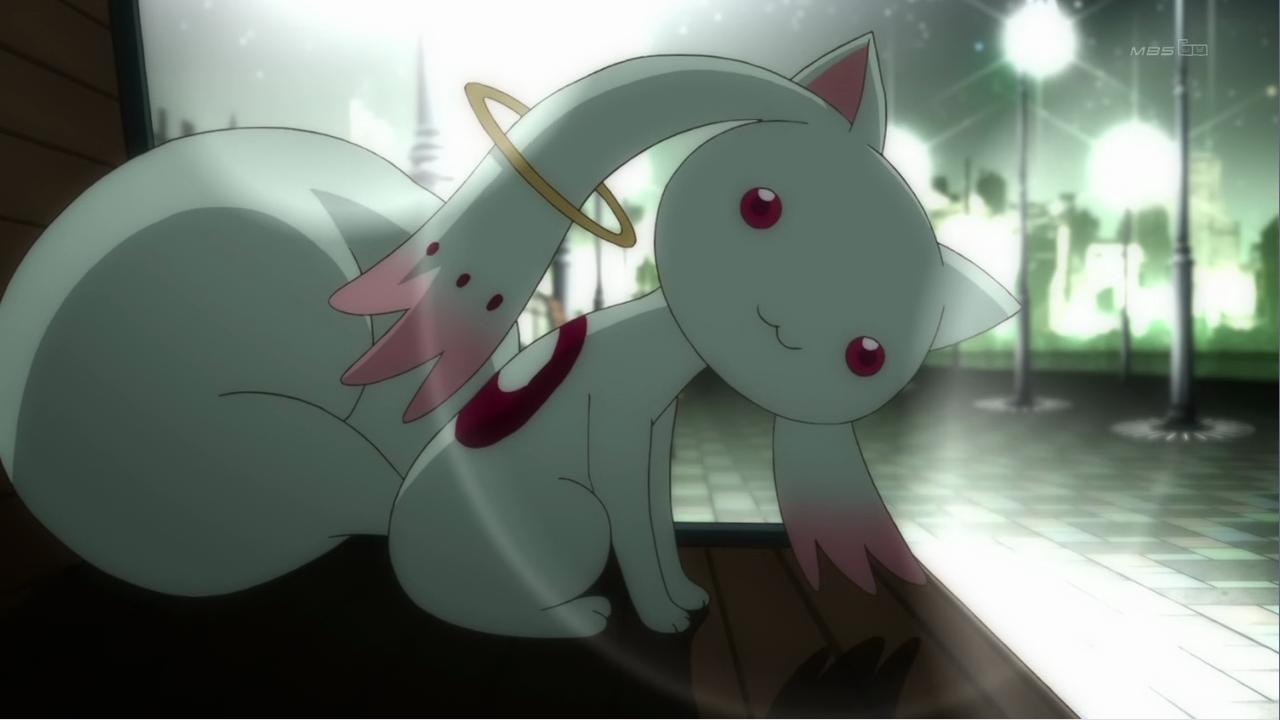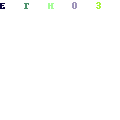So, to help with this, I've put together a guide to 15 of the most prominent compositions from the Touhou series, along with a short explanation.
The ZUN Scale - Menu Music
F A# C D# C A# F A# C D# C A# F A# C D# C A# F A# C D# C A#...you will hear this on opening almost any of the windows era Touhou games. It may not be in the same key, or in the same place compositionally, but it will be there. It gets you in the mood to dodge rain high above the scenery of Gensokyo - a serene yet surreal place where gods have nothing better to do than shoot lots of magic at each other and drink tea and sake. It's not as often you hear it arranged, but when you do, it's usually the first track on the album. For instance, R.E.D. from Sound Holic's album Metallic Vampire. ZUN says the theme sounds "Japanese" to him. ZUN says that about a lot of his work, and still nobody really knows what he means. It's definitely a very calm and airy sort of progression, and as ZUN pointed out himself, doesn't sound much like a shooting game.
Bad Apple!! - Elly's Stage Theme (Lotus Land Story)
Beloved Tomboyish Daughter - Cirno's Theme (Embodiment of the Scarlet Devil)
Locked Girl - Patchouli Knowledge's Theme (Embodiment of the Scarlet Devil)
Septette for the Dead Princess - Remilia Scarlet's Theme (Embodiment of the Scarlet Devil)
U.N. Owen Was Her? - Flandre Scarlet's Theme (Embodiment of the Scarlet Devil)
But at least the last thing you hear will be here theme song. It's probably the second most well known composition from Touhou besides for Bad Apple!! and Doll Judgement. It's been spread around the internet as McRoll'd and as John Stump's Death Waltz (the latter was how I found Touhou to begin with), some people never even realizing what it actually was. It's a pretty strange piece structurally. You have the intro segment with the rapid fire riff, string continuo, and weirdly non-metric percussion, which goes into the much simpler coda that transitions to the main melody. It's a simple melody, as always, and a powerful one. There's a tempo shift as it goes into the next segment, which is several octaves lower and serves as a coda back into the melody. ZUN said he had a lot of fun writing this one. It definitely comes through. It's interesting to note that the weirdness with the tempo and meter creates some pretty big problems for people who have tried to make arrangements of it. Incidentally, here is the arrangement through which I discovered Touhou in the first place. It's like Scott Joplin decided to write a piano rag that could only be played on player piano.
Doll Judgement - Alice Margatroid's Theme (Perfect Cherry Blossom)
Dare ga, dare ga KAN BI ALI FAU TSU
Doushite? Naze kashira...
WAI WAI WAI WAI MISSHU A LOT FOEBAA~
For doubtlessly a good 90% of Touhou fans, they will feel the urge to sing these lyrics on hearing this song. This is called IOSYSitis, and it kills untold multitudes each year. In all seriousness, the IOSYS arrangement called Marisa Stole the Precious Thing (listen at your own peril) is probably why it's so well known, but it'd be one of my favorites regardless. It's got ZUN's ever common busy piano work, which works with some synth sounds to create some rather eerie feeling polyphonies, that lead without coda into the main melody. ZUN says that he composed this one with renewed vigor, and that he wanted to emphasize how laid back these girls are as they blast each other with arcane power for fun and profit. I don't think he quite nailed the laid back part, not with the erie feeling and melancholic melody. A lot of ZUN's better work feels kinda melancholic, come to think of it. That, and nostalgic, but this is definitely not a nostalgic piece.
Ancient Temple - Youmu Konpaku's Stage Theme (Perfect Cherry Blossom)
Love Colored Master Spark - Marisa Kirisame's Theme (Imperishable Night)
This one isn't nostalgic at all though. Marisa climbs through windows and borrows peoples books with no intention of returning them. She spends all her time coming up with inventive and impractical spells and teaching youkai lessons in respect with her love-colored magic. When it comes down to it though, make no mistake: she's chaotic, but chaotic good, and her theme reflects it perfectly. It's got the ZUN trumpets, and an electric guitar part, a heavy beat, and lots of energy. It's got a grandiose sort of feeling, but it's also very directed. I don't really have much to say about it compositionally, except that it seems to have a very FM-synth like continuo part during some segments. Perhaps it is a callback to Casket of Stars, one of her themes from the PC-98 era. Come to think of it, Marisa has a lot of themes, but this is really the only one you ever hear about. Anyway, it's rather direct for ZUN - it's very game-like. He doesn't do game-like often.
Maiden's Capriccio - Reimu Hakurei's Theme (Imperishable Night)
Maiden's Capriccio is also a victim of IOSYSitis, with their seminal earworm Neko Miko Reimu. Sing it with me:
Neko Miko Reimu, ai shiteru! (Cat-eared Miko Reimu, I love you.)
Neko Miko Reimu, nani shiteru? (Cat-eared Miko Reimu, the hell are you doing?)
Neko Miko Reimu, shuran yurari... (Cat-eared Miko Reimu, hopelessly drunk...)
Neko Miko Reimu, muron furari! (Cat-eared Miko Reimu, and aimless, of course.)
Lunatic Eyes - Reisen Udongein Inaba's Theme (Imperishable Night)
Actually, come to think of it, most of Imperishable Night's soundtrack was pretty heavy. However, there's nothing so "heroic" in Lunatic Eyes as Maiden's Capriccio or Love Colored Master Spark. It's actually a rather spooky theme, which is fitting for an encounter with an uncanny lunarian rabbit in the middle of a bamboo forest during an unnaturally long night. The frantic lead-in piano and synth to the kinda hard-rock-ish melody feels like an idea I've heard before somewhere, and not just in other soundtracks either. I think the defining feature of this piece is how its A melody is a restatement of the same riffs in different keys. I think there must be something inherent to that construction that resonates with us as being "frantic" or "insane." Anyway, Lunatic Eyes also has a well known IOSYS arrangement called Stops At the Affected Area and Immediately Dissolves. It will not leave you singing any lyrics, only saying to yourself "wh...what just happened to me?" I think this song is the closest I'll ever come to an acid trip. There's rabbits...and everyone is speaking nonsense...and some girl who looks like Robin Hood if he were a girl and dressed like a nurse talking about suppositories...and now they're playing DDR...WHAT'S HAPPENING?
Flowering Night - Sakuya Izayoi's Theme (Phantasmagoria of Flower View)
The Gensokyo the Gods Loved - Nitori's Stage Theme (Mountain of Faith)
Naitive Faith - Suwako Moriya's Theme (Mountain of Faith)
It suffers from IOSYSitis, at least, to people who understand some Japanese. The song in question is Kero⑨Destiny, which turns it into the worlds weirdest childrens' song. Odd how the life of a several thousand year old god who once led an army has been simplified to that of a child. There's a lot to be said about Suwako's character in general, really.
Nuclear Fusion - Utsuho Reiuji's Theme (Subterranean Animism)
Utsuho Reiuji - better known as Okuu or Chernobyl-tan to fans - is the most outright "villainous" boss character of the Touhou games, but not because she means to be. She was a hell-raven who obtained the power to control nuclear reactions and misheard some voice that she thought told her to destroy the surface world. A misunderstanding or not, in terms of sheer power and dangerous intent, she's one of the most formidable characters in Touhou, and her theme - Solar Sect of Mystic Wisdom ~ Nuclear Fusion - reflects this. ZUN tried to make it as "boss-like" as possible, and gave us a very heavy and complex piece with trumpets and pianoforte and heavy percussion. It starts with a descending scale reiterated in different keys, starting strong, and going into an A melody, and flowing naturally into the main B melody: a strongly stated, dangerous piece, aided by the persistent percussion, and yet always remaining clear. Though they are both final boss themes, it's interesting to note how diametrically opposed Septette for the Dead Princess and Nuclear Fusion are.
Personally, I consider Demetori's version almost canon. The original may as well be metal anyway.
Homework Assignment:
Now that you've been introduced to the barest essentials of the Touhou musical canon, if you've got another 20 minutes, here is an excellent piano medley, which includes all of the songs mentioned here. It highlights some of the problems encountered when trying to arrange these compositions, as well as ways in which these problems can be turned into features.
Here are some of the better known doujin composers:
TAMusic: Makes good chamber music, crappy electronic-chamber hybrid.
WAVE: Arranges for a real orchestra, forgets what they were arranging.
Virus Key: Arranges for a midi orchestra, adds faux choir to ALL the things.
Buta-Otome: Makes cool fusion arrangements of Magical Astronomy. Also, sometimes actual Touhou.
Alstroemeria Records: Makes house, sometimes quotes Touhou and calls it an arrangement.
Syrufit: Makes electronica and engrish.
Demetori: Makes a lot of incredibly awesome noise.
Xi~On: Makes slightly less noise, slightly less awesome.
ShibayanRecords: Makes bad easy listening, kick-ass electronic music.
Unlucky Morpheus: Makes kick-ass Jazz, kinda neat speed metal.
EastNewSound: Makes you forget you're listening to pop.
Sound Online: Doesn't make much nowadays, but used to make really clean sounding electronica.
Sound Holic: Makes lots of different stuff with varying degrees of awesome.
Cool&Create: Makes alternative rock, funny sounds into the microphone.
Tomoya: Makes awesome piano music, awful recordings.
REDALiCE: Doesn't make much anymore either, but used to make lots of really fast techno.
Yuuhei Satellite: Makes awesome PVs and electronic music.
IOSYS: Makes absolutely no fucking sense.








